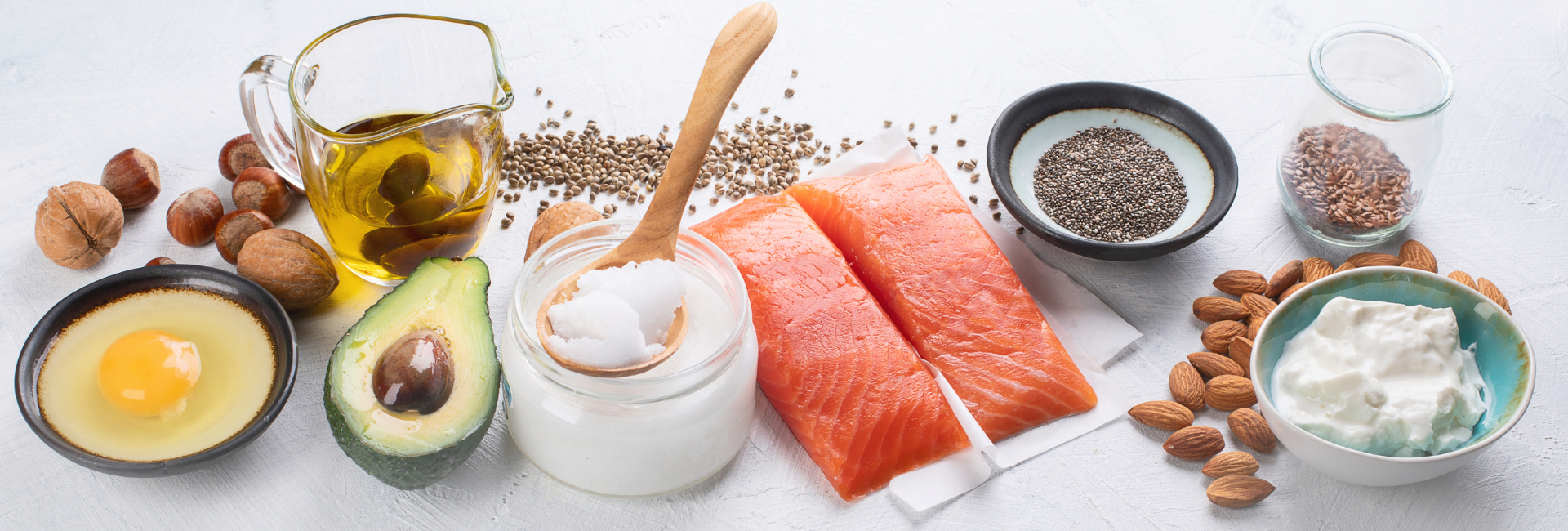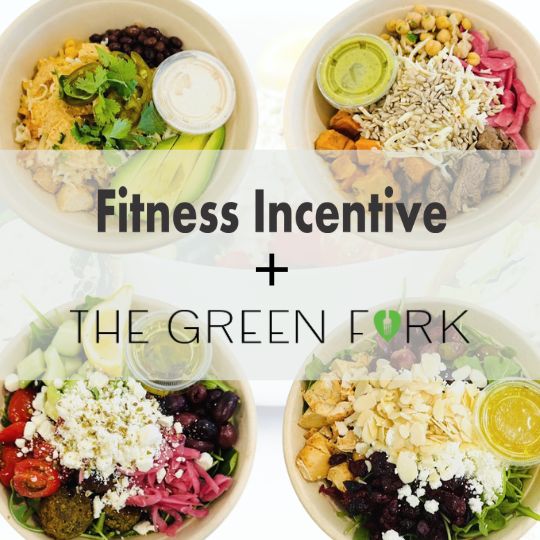
Despite an abundance of evidence to the contrary, many people remain convinced that fat is their enemy – the source of all that is bad in their diet, their body, and their health.
- Corinne Brown

People often ask me about what they should be eating – and avoiding. Most are convinced that anything “fat” is on the avoid list, and they’re surprised when I disagree. Let me explain and expand upon why fats – healthy fats – should be part of your diet.
Healthy Fats – Not an Oxymoron
Despite an abundance of evidence to the contrary, many people remain convinced that fat is their enemy – the source of all that is bad in their diet, their body, and their health. But not all fats are created equal; some are not only healthy but essential. The truth is fats play an important role in our bodies. They help reduce inflammation, improve cognitive function, support heart health, and, believe it or not, can help with weight loss.
Omega-3
One type of healthy fat is omega-3 fatty acids. These are essential fats that the body can’t produce on its own. They must be obtained through diet or supplements. Omega-3s can be found in fish, such as salmon (choose wild), tuna, and sardines, as well as flaxseeds, chia seeds, and walnuts. Studies have shown that consuming omega-3 fatty acids can decrease inflammation, chronic disease, arthritis, and cancer.
Monounsaturated Fat
Another important fat is monounsaturated fat, found in avocados, certain nuts, and olive oil. These also reduce inflammation, improve heart health, lower cholesterol, and reduce the risk of heart disease. Consuming these fats can also improve insulin sensitivity and blood sugar control.
Saturated Fats
Saturated fats have been controversial, with many health experts suggesting that they be avoided or limited in the diet due to their potential adverse effects on cholesterol levels and heart health. However, recent research has challenged these assumptions and suggested that saturated fats may have health benefits. Including:
- Improved cardiovascular health: For many years, saturated fats have been thought to increase the risk of heart disease by raising LDL (“bad”) cholesterol levels. Recent research suggests that the relationship between saturated fat and heart health is more complex. Moreover, saturated fats are generally more resistant to oxidation than unsaturated fats, and there is evidence that oxidation plays a role in inflammation, increasing the risk of cardiovascular disease.
- Improved brain function: Saturated fats are essential for forming and maintaining brain cell membranes and improving cognitive function and memory.
- Improved immune function: Saturated fats help to regulate immune cell function and can help to prevent or reduce inflammation in the body.
- Improved bone health: Saturated fats are essential for the absorption of calcium and other important minerals.
- Improved hormone balance: Saturated fats are necessary for the production of hormones such as testosterone, estrogen, and progesterone.
It’s important to stress that you should get your fats from whole foods and avoid those from processed and fast food.
Fat for Weight Loss? Yep!
Almost everyone is surprised to learn that consuming healthy fats can aid in weight loss. I know people say to me they are worried they’ll gain weight consuming fats, but on the contrary, fats are calorically dense, so they help you feel satiated and reduce the volume of food you ingest. Consuming healthy fats, especially in place of carbohydrates, can also help improve insulin sensitivity, reducing your risk of developing metabolic disorders like obesity and diabetes.
Here’s What I Do
There’s a tremendous amount of information available on the role of fat in a healthy diet. I encourage you to do some research and educate yourself. In the meantime, here are two examples of my typical lunch. Keep in mind I practice intermittent fasting for about 16 hours a day, so my “break-fast” is typically around lunchtime. Here are my two favorites:
1 ½ half cups of 100% grass-fed yogurt
1 tablespoon organic split flax seeds
1 tablespoon hydrolyzed grass-fed collagen powder
1 Tablespoon psyllium husks
½ cup organic sprouted walnuts
3 organic brazil nuts
Cinnamon
Optional: Add ½ – 1 cup of organic fresh berries to the mix
Or (depending on the day)…
4 whole free-range pasture-raised organic eggs
Cooked over-easy in ¼ teaspoon ghee or cold-pressed organic olive oil
Sea salt and black pepper
Serve with:
½ to 1 whole avocado
1 cup organic broccoli sprouts
Please email me at cor111@optonline.net to share your thoughts or ask questions.
Love, Cor
Sponsored Links
About the Author

Corinne Brown
Corinne Brown is a fitness professional with over 40 years of experience. She is the Founder and Owner of Fitness Incentive.











